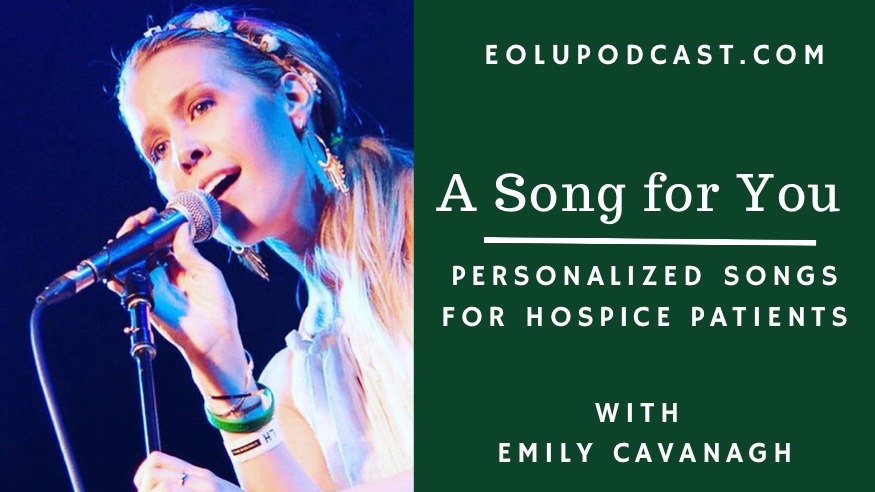Learn about the challenges faced by caregivers for dementia patients and some creative ideas for offering support.

In this episode I welcome back my recurring guest Barbara Karnes, hospice nurse, speaker, thought leader, and expert on end-of-life care. She is the author of the “little blue hospice book” Gone From My Sight and her most recent book By Your Side: A Guide for Caring for the Dying at Home. We discuss the challenges of caring for a person with dementia and the impact that care can have on family members. Learn more about Barbara’s work at her website:
This episode includes:
- There are now over 7 million people with dementia in the US
- Dementia patients require twice as many hours of care as other patients
- The late stage of dementia can last 1-2 years; patients are eligible for hospice care during the last 6 months
- How the last stage of life for dementia patients differs from that of other end-of-life patients
- Why caregivers for dementia patients are much more likely to suffer exhaustion and depression
- A marker to use for determining when a dementia patient is eligible for hospice
- Why it’s essential to create an advance directive early in the course of dementia while the patient can make decisions
- The need for “dementia doulas” to guide and assist caregivers
- What happens when a caregiver can no longer take care of their loved one at home
- How some financial planners are doing a better job talking to their clients about preparing for healthcare needs than medical providers are doing
- Simple tips to help caregivers in the moment
Links mentioned in this episode:
- FAC-AZ Annual Meeting in March: Register here (you can attend in person or virtually)
- What Really Matters Podcast
- NEW Archives Page
- Family Caregiver Alliance: Website Caregiver College Videos
- A Place for Mom
- Book recommendation: Connecting the Dots by Judith London
- Leave me a message by email: kwyattmd@comcast.net, Twitter, Facebook or Instagram
- Support your local bookstore by buying my books on Bookshop and Indiebound: 7 Lessons for Living from the Dying and The Journey from Ego to Soul
- Subscribe to this podcast on Apple, Google, Spotify, iHeart Radio, Stitcher Radio
- Check out the Series I’ve recorded in the past here
- Join the team at Patreon.com/eolu and receive free gifts like the “Mind if we talk about death?” mini-poster or Love Your Life sticker or coffee mug. PLUS get our regular bonuses: the monthly EOL News Update, occasional movie reviews from 2 Doctors and a Movie, and automatic access to A Year of Reading Dangerously!
- Buy me a coffee
- Donate on Paypal
If you enjoy this content please share it with others and consider leaving a review on iTunes. Thanks again to all supporters on my page at Patreon.com/eolu, especially my newest patron Barbara Richardson and thank you also to Jen Blalock for buying me a coffee! Your contributions make all the difference.




















